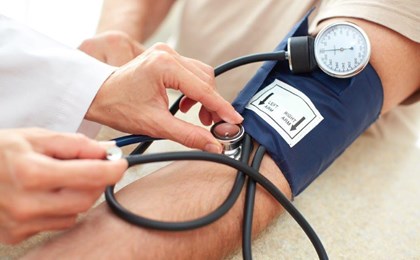Tis the season to be jolly – but you can’t feel all festive if you are feeling under par. Health experts Dr Lisa Neligan and Dr Roger Brown of Kingsbridge Private Hospital, part of the 3fivetwo Group, offer some tips on how to keep the gremlins at bay in the run up to Christmas.
1. Christmas Tree Syndrome
Yes, there really is such a syndrome. It causes an itchy nose, watery eyes, and shortness of breath, coughing, chest pains and fatigue. Avoid pining about your pine by hosing down your tree in the garden and letting it dry out before putting it up in your home. Dispose of promptly after Christmas Day.
2. Stomach Upset
Too much food, too many sweets and too much alcohol - your stomach is likely to be the biggest victim of this Christmas season. Typical symptoms include a bile taste in the mouth, stomach pains, ulcers, irregular bowel movements, and constipation. Coffee, fatty foods, onions, alcoholic drinks and chocolate can make the discomfort even worse. Resist over-indulging, but if you can’t, a variety of medications are available in supermarkets and chemists. If in doubt, talk to your Doctor or Pharmacist.
3. Hangovers
Waking up feeling like Christmas elves are hammering on your head is no fun. Alcohol removes fluids from the body, leading to nasty headaches. Men shouldn’t drink any more than three (pint of beer is 2.3 units) of alcohol a day, women two (small glass of wine is 1.5 units). Tips to avoid hangovers: don’t drink on an empty stomach, drink water or soft drinks between the alcoholic ones, drink no more than one unit of alcohol per hour ( ie pace yourself and let your liver keep up!) and an additional large glass of water before going to bed.
4. The Flu
Chesty cough, aching limbs, sore throat, runny nose – it’s that time of year again. Flu symptoms usually peak after two to three days and you should feel better within five to eight. Get plenty of rest, drink lots of water and keep warm. Some complications of flu, such as chest infections or pneumonia may need to be treated with antibiotics, in which case you should consult your GP.
5. Indigestion
A burning pain in your chest, along with belching and nausea, means you might have had one or two mince pies too many. Keep some antacids handy in your medicine cabinet – but if symptoms persist or are extreme you should consult your Pharmacist or GP.
5. Splitting headaches
As well as the added stress the festive season can bring to some people, sudden dips in temperature, and the common cold, can set off splitting headaches. They can also be caused by things such as red wine, MSG, coffee, cheese, not eating regularly … or listening to excited children screaming all day. The best way to avoid a winter headache is to eat plenty of fruit, veg and lean protein, grab a good night’s sleep, drink plenty of water and get out for a walk in the fresh air.
6. Seasonal Affective Disorder
SAD is a form of depression that affects people from September to November for reasons that are thought to be linked to lack of sunlight, which in turn affects mood-related chemicals in the brain. Treatments include cognitive behavioral therapy, antidepressants and light therapy as well as a healthy balanced diet and exercise.
7. Dry Skin & Eczema
Central heating, dehydration and bad weather all contribute to dry skin conditions. In addition, eczema can be exacerbated by heat, cold, dryness, wetness or harsh wind. Unscented moisturising cream, e.g. E45, applied several times a day, will help.
8. Chilblains
Chilblains are red, itchy lumps caused by getting too cold – then trying to warm up too quickly. This can tend to be something that happens when it snows. We kick the shoes and socks off when we get home and put our feet on a hot radiator or too close to the fire. Avoid getting too cold in the first place by keeping your hands and feet warm with thick gloves and socks.
9. Norovirus
Norovirus – also known as the winter vomiting bug – affects between 600,000 to 1 million people every year. It is highly contagious and causes severe vomiting and diarrhoea. The incubation period is usually 12-48 hours and it shouldn’t last more than a couple of days. There is no cure, but you can ease the symptoms by drinking plenty of water and taking paracetamol for the aches and pains. Prevent smiting anyone else by washing your hands frequently with soap and water, not sharing towels or flannels, and disinfecting surfaces.
10. Common Cold
It wouldn’t be Christmas without the Common Cold. In adults it lasts for about a week and in children about two weeks. Or you could get one after another, which is particularly un-festive. Take over-the-counter medication such as paracetamol and drink plenty of fluids. If symptoms persist for more than three weeks, consult your Pharmacist or GP.
11. Breaks and Sprains
Balancing on the kitchen stool or arm chair to get the fairy lights just right, or the star on top of the tree can often lead to our concentration being lost and many taking an unexpected fall. If you are unsure how to differentiate between a sprain and a break it is always best not to move the casualty, especially if they have hurt their back or neck and are in extreme pain. In this case always call for emergency services. If it is a leg or arm injury and it is swollen, but the patient can move ankles/toes and fingers then it is more likely to be a sprain. The injured area needs rest, ice and a compression applied along with elevation and pain relief.
12. Accidents with New Toys
Many young children are so keen to get on their new shiny bicycles or roller blades to test drive them as soon as possible, no matter the weather. Caution needs to be taken if it is snowy or icy outside as many a child has fallen and split a knee or given themselves a minor head injury as a result of this. Should this happen you need to attend to the cut immediately or apply ice wrapped in a cloth to the head injury. If the child needs stitches you may need to take them to a Minor Injuries Unit or if you have any queries contact Kingsbridge Private Casualty & GP Service 02890 667878 for further advice or check out opening times over the festive season by clicking here.

Both Dr Lisa Neligan and Dr Roger Brown are General Practitioners at Kingsbridge Private Hospital, part of the 3fivetwo Group, and also practice in both urban and rural communities, throughout Northern Ireland.









